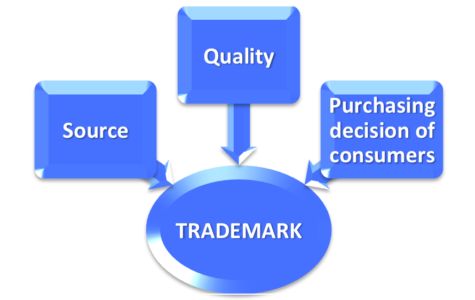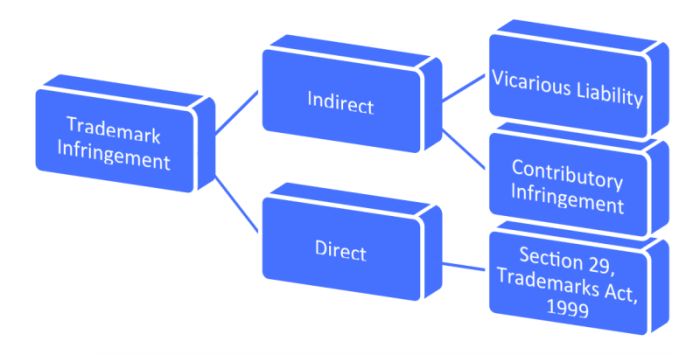- within Antitrust/Competition Law topic(s)
- with readers working within the Law Firm industries
The main purpose of a trademark is to help people recognize the source of a particular good or service. The source, in turn, helps people determine the quality. Quality is what consumers usually base their purchase decisions on. This is why a trademark is of extreme importance in the economy. For the consumer, a trademark reflects the source and quality of the goods or services.

This is also why it is very important to ensure that your trademark is not being infringed upon. A trademark represents the brand value of the trademark owner. Infringement of trademark usually, causes a loss of finances and goodwill to the owner of the infringed mark. It is always better to be vigilant and prevent potential infringers from riding on the goodwill and reputation that you established.
What does Infringement of Trademark mean?
Trademark infringement in India is defined under Section 29 of the Trademarks Act, 1999. Simply put, when an unauthorized person uses a trademark that is 'identical' or 'deceptively similar' to a registered trademark, it is known as infringement.
Now, let us take a look at the constituent elements of Infringement of trademark:
1. Unauthorized person – this means a person who is not the owner or the licensee of the registered trademark.
2. 'Identical' or 'Deceptively similar '– the test for determining whether marks are identical or not is by determining whether there is a chance for a likelihood of confusion among the public. If the consumers are likely to get confused between the two marks then there is an infringement.
3. Registered Trademark – You can only infringe a registered trademark. For an unregistered Trademark, the common law concept of passing off will apply.
4. Goods/ Services – In order to establish infringement even the goods/ services of the infringer must be identical with or similar to the goods that the registered Trademark represents.
Any unauthorized use of the exclusive statutory rights of a registered trademark constitutes infringement.
The infringement explained above is direct infringement. There is another aspect to trademark infringement in India, i.e. indirect infringement.
What is Indirect Infringement of a Trademark?
Indirect infringement is a common law principle that holds accountable not only the direct infringers but also the people who induce the direct infringers to commit the infringement. Indirect infringement is also known as secondary liability has two categories: contributory infringement and vicarious liability.
A person will be liable for contributory infringement in two circumstances:
1. When a person knows of the infringement
2. When a person materially contributes or induces the direct infringer to commit the infringement.
A person will be vicariously liable under the following circumstances:
1.When the person has the ability to control the actions of the direct infringer.
2.When a person derives a financial benefit from the infringement.
3.When a person has knowledge of the infringement and contributes to it.
Vicarious liability usually applies in the case of employer-employee relationships and the like. This finds indirect mention in section 114 of the Trademarks Act. According to this section, if a company commits an offence under Act then every person who is responsible for the company will be liable. Except a person who acted in good faith and without knowledge of the infringement.
On the whole, indirect infringement occurs when a person, though not infringing directly, causes another person to infringe on a trademark.
With the growth in the e-commerce industry liability for indirect infringement is extremely important as holds every involved person accountable.
Thus, whether direct or indirect, any form of trademark infringement in India can attract liability. To avoid infringement of trademarks, you contact our trademark experts to get a consultation before launching your brand or product.
Trademark Infringement in India – At a Glance:

The content of this article is intended to provide a general guide to the subject matter. Specialist advice should be sought about your specific circumstances.
[View Source]

